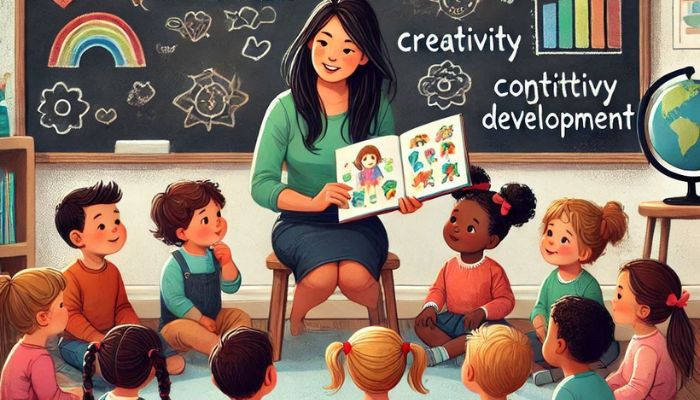Building Bright Futures: Early Education’s Impact

Early education plays a pivotal role in shaping a child’s future. By providing a strong foundation during formative years, early education fosters essential skills that help children thrive academically, socially, and emotionally. The impact of quality early education is profound, setting the stage for lifelong success.
The Importance of Early Education
The early years of a child’s life are marked by rapid brain development, making it the perfect time to introduce structured learning. Early education equips children with the tools they need to explore their potential. It nurtures creativity, problem-solving, and social interaction skills that are crucial for their growth.
Key Benefits of Early Education

1. Cognitive Development
Early education enhances cognitive abilities through engaging activities and hands-on learning. Children develop critical thinking skills, improve memory, and expand their understanding of the world around them.
2. Social and Emotional Growth
Interacting with peers in a structured environment helps children build emotional intelligence. They learn empathy, cooperation, and conflict resolution, which are essential for healthy relationships.
3. Language and Communication Skills
A strong emphasis on language development during early education helps children articulate their thoughts and feelings. Storytelling, group discussions, and interactive sessions enhance their vocabulary and communication abilities.
4. Fostering Independence
Early education encourages children to take initiative, make decisions, and develop a sense of responsibility. These skills prepare them for future academic and personal challenges.
The Role of Educators in Early Education

Educators are the backbone of early education. They create a nurturing environment that supports holistic development. By using innovative teaching methods and personalized attention, they inspire curiosity and a love for learning in children.
How Early Education Shapes Bright Futures
The impact of early education extends beyond the classroom. It lays the groundwork for future academic achievements and career success. Studies show that children who receive quality early education are more likely to excel in school, have higher self-esteem, and contribute positively to society.
Parents as Partners in Early Education
Parents play a crucial role in reinforcing the lessons learned in early education. Active participation in their child’s learning journey strengthens the bond between home and school. Simple activities like reading together, encouraging curiosity, and celebrating achievements contribute significantly to a child’s growth.
Why Investing in Early Education Matters

Investing in early education is an investment in the future. It not only benefits individual children but also strengthens communities by creating a well-educated and responsible generation. Governments and organizations must prioritize accessible and affordable early education programs to ensure every child has an equal opportunity to succeed.
Conclusion
Early education is the cornerstone of building bright futures. By nurturing young minds during their formative years, we unlock their potential and set them on a path of lifelong success. The impact of early education goes beyond academics, shaping confident, empathetic, and capable individuals ready to take on the world.


